Tory leadership: Who could replace Theresa May?
Theresa May won a vote of confidence on Wednesday evening, which was called after the required 48 letters demanding a contest were submitted.
But despite winning, her future looks far from certain.
Here - based on the latest odds at the bookmakers - are the fancied runners tipped to be vying for the top job, if and when Mrs May's tenure as prime ministers comes to an end. None has so far declared their intention to stand.
Boris Johnson
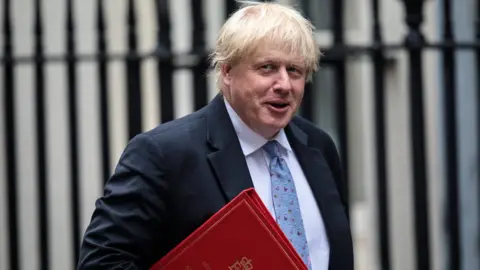 Getty Images
Getty ImagesBoris Johnson, 54, was the face of the campaign to get Britain out of the EU and did little to disguise his disappointment with Mrs May's Brexit plan, eventually resigning as foreign secretary over it.
The former London mayor has long harboured leadership ambitions and is a big favourite with Conservative Party members but he would first have to get the backing of enough MPs to make into the ballot of members - no easy task.
His first bid for the leadership, following the 2016 referendum, ended in disaster after fellow Leave supporter Michael Gove abandoned him at the 11th hour and put himself forward instead, prompting Mr Johnson to withdraw from the race.
Dominic Raab
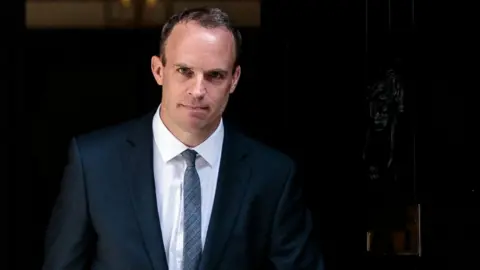 Getty Images
Getty ImagesDominic Raab, 44, had already been a long-standing Eurosceptic when he became part of the Leave campaign in the 2016 referendum.
The former Brexit secretary resigned in November over what he described as "fatal flaws" in the prime ministers draft Brexit agreement.
The former lawyer has refused to rule out standing in a leadership contest and is said to be "relaxed" about a no-deal scenario, which will appeal to Brexiteer MPs.
He warned on Thursday that if Mrs May continues as prime minister, there is a "greater risk of a Jeremy Corbyn government".
He added: "We will have to back her as best we can but the problem is that both in relation to Brexit and the wider sustainability of the government, given the likelihood of any changes to the deal, given the likely scale of opposition, it looks very difficult to see how this prime minister can lead us forward."
Sajid Javid
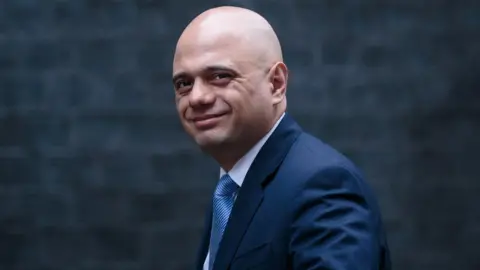 Getty Images
Getty ImagesA former protege of George Osborne, 49-year-old Sajid Javid became the first home secretary from an ethnic minority background in April, following Amber Rudd's resignation.
Long thought of as a Eurosceptic, it was a surprise to many when Mr Javid came out for Remain during the 2016 referendum.
An MP since 2010, he has previously served as business secretary and then culture secretary, and was part of a short-lived "joint ticket" leadership bid in 2016, hoping to become chancellor with Stephen Crabb as PM.
After the vote, he tweeted: "Right, vote over. Time to come together, deliver Brexit and so much more."
Michael Gove
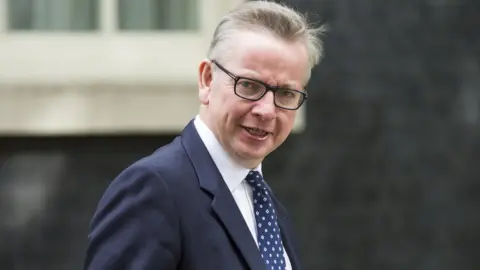 Getty Images
Getty ImagesMichael Gove, 51, made a dramatic comeback in June 2017 when he returned to the cabinet as environment secretary, just a year after he was sacked in the 2016 reshuffle following Mrs May's leadership victory.
The former justice and education secretary came third in the last leadership contest, after withdrawing his support from fellow Leave campaigner Boris Johnson and deciding to stand himself.
Mr Gove has not ruled himself out to succeed Mrs May but played down speculation, saying it was "extremely unlikely" he would stand and tweeting on Wednesday that he was "backing the Prime Minister 100%".
Jeremy Hunt
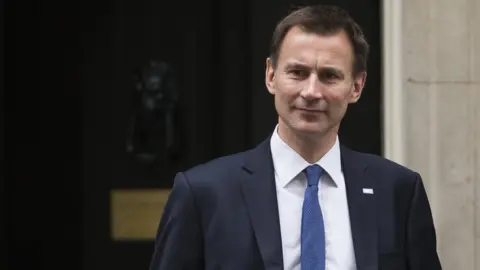 Getty Images
Getty ImagesForeign Secretary Jeremy Hunt, 52, had always been seen as a Eurosceptic but was one of the figures supporting the David Cameron Remain position during the 2016 referendum.
Mr Hunt, who was the longest serving health secretary in the history of the NHS before being promoted to foreign secretary, is considered a close ally of Theresa May.
However he has faced a number of controversies during his career, including a battle over a new contract for junior doctors in 2015.
Mr Hunt tweeted his congratulations to Mrs May after the vote, saying her "stamina, resilience and decency has again won the day".
David Davis
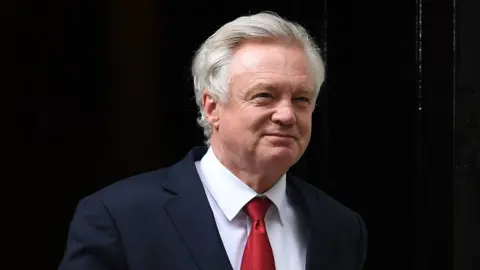 Getty Images
Getty ImagesThe former Brexit secretary was the first minister to quit over Mrs May's Chequers plan in July, saying he couldn't back a policy he didn't believe in.
An MP since 1987, Mr Davis, 69, first stood to be Conservative leader in 2001 and was an overwhelming favourite to replace Michael Howard in 2005 but lost out to David Cameron.
He went on to serve as shadow home secretary under Mr Cameron but dramatically resigned his seat and frontbench role in protest at plans for identity cards and 42-day detention without charge.
He successfully fought a by-election and returned to the backbenches before unexpectedly being propelled back into frontline politics as Brexit secretary after the 2016 referendum.
Amber Rudd
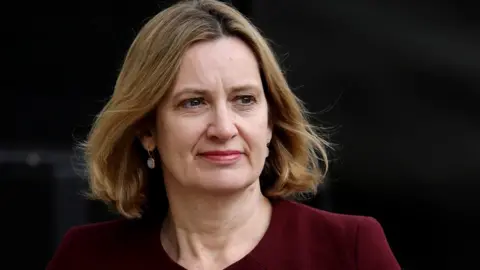 Getty Images
Getty ImagesAmber Rudd only returned to the cabinet as work and pensions secretary in November after resigning as home secretary over the Windrush scandal.
She was a leading Remain campaigner in the 2016 referendum and although being a vocal supporter of the PM's Brexit plan, she has also proposed an alternative, which would see the UK being more closely tied to the EU.
The 55-year-old MP has a slim majority of 346 in her Hastings constituency and the risk of losing her seat could hinder her chances.
On Thursday, she said the vote has put an end to the leadership question.
She said Mrs May has "got the support of the party behind her" and that she hopes the government can now get on with delivering a successful exit from the EU.
Others being talked about as possible contenders
Brexiteer Esther McVey, who quit the government over Mrs May's deal has already shown her ability to bounce back after losing her seat in 2015.
Penny Mordaunt was a leading figure in the Leave campaign in 2016 and despite appearing reluctant to explicitly back Theresa May's Brexit plan, she has not resigned from her cabinet role as international development secretary.
Liz Truss, currently second-in-command at the Treasury, has been building up her profile with some memorable party conference appearances.
Commons leader Andrea Leadsom, a Brexiteer who challenged Mrs May in 2016 before withdrawing, might fancy another go
Attorney General Geoffrey Cox was a big hit at this year's Tory conference, with a theatrical speech, prompting talk of him as a future leader.
Priti Patel, a Brexiteer who quit the government over private trips to Israel, has a strong base of support which is reflected in the betting.
Jacob Rees-Mogg, who led calls for Mrs May to go, has previously denied having leadership ambitions. Might he change his mind?
Theresa May's second-in-command David Lidington, a Remain supporter, also features in the betting.
Backbencher Tom Tugendhat, Cabinet ministers Matthew Hancock and Gavin Williamson, backbencher James Cleverly and Scottish Tory leader Ruth Davidson are also on the bookmakers' lists as outsiders.
Remain-supporting former education secretary Justine Greening has not ruled out standing if a vacancy arose.